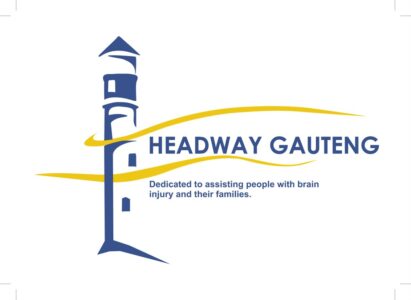By Mia Pienaar, Manager of the Counselling and Support Programme at Headway Gauteng
Roles and relationships are wired into our DNA. Throughout human history, we’ve found success as a species by working together, combining strengths to achieve things greater than any individual—like travelling to space. Over centuries, we’ve learned to lean on each other for comfort and motivation in times of sorrow, pain, or weakness.
Psychological research confirms that co-regulation—our nervous systems responding to each other—is key for mental wellbeing. This is why yawns, laughter, and even anxiety can be contagious. Biologically, we absorb each other’s emotions, and calmness and compassion from others can soothe us.
Hiding Distress and Performing Roles
Intuitively, many people know this, which is often why we try to shield our distress from others. We don’t want to “burden” anyone else or make them worry. Sometimes, we also fear the response we might receive. Though understandable, this approach can increase feelings of loneliness and isolation, deepening emotional divides.
As a herd species, a good chunk of our self-esteem comes from the roles we perform and how others view us. Many people pursue career growth, financial stability, or caretaking as ways to feel valuable and accepted. Ask yourself, how much of your identity is tied to your job status, earning potential, or what you physically contribute to the family system? How much of your identity is made up of your ability to be a “good woman” or a “good man” and how others perceive you? How often does your mood plummet or your stress levels rise from not feeling good enough? From not feeling worthy?
So, we have two problems – firstly, the way we try to keep our distress away from ourselves and others, which ends up leaving too many people feeling isolated and unworthy. Secondly, that the roles we play for each other can be a great source of doubt, criticism, sorrow; internally and between each other.
And that’s before we even get to brain injury!
Brain Injury: Adding Complexity to Roles and Emotions
Family members often respond to their own trauma, of watching a loved one survive a brain injury. They may become hypervigilant, overly involved, or even controlling. The overwhelming emotions that accompany caregiving—grief, duty, love, and sometimes lack of options—can be exhausting.
Most adult survivors of brain injury usually have some sense of independence and what it feels like to earn money and use it to contribute to the family system. Having this ripped away by the brain injury, so that they are suddenly dependent and fighting for any tiny ounce of agency, I can only imagine as being excruciatingly painful. Alongside their grief, their trauma, their effort to recover, survivors can become hypervigilant about their ability, their self-worth, and their sense of control.
Solutions Through Connection
What are the solutions here? The research says that we need to co-regulate, as in spend good quality time connecting in compassion, vulnerability, and authenticity. Laughing, singing, making music together, dancing together, being in nature together, sharing honesty and burden, exploring together – these are all examples of co-regulation that feeds our mental health. Of course, brain injury makes actually doing these things complicated – because of the trauma that has heightened our emotions, and because of the overwhelm that can easily accompany the day-to-day lives of survivors of brain injury and their family members.
My solutions:
- Working to accept, over and over and over again, that emotions are a vital part of our minds, giving us information about how our biology is responding to the world around us. When we are more honest with ourselves and others about the emotions that we are experiencing, and specifically when we can communicate this calmly and clearly, we find connection.
- Working on our own understanding of what we’re feeling and where those emotions are coming from, so that we can explain what we’re feeling when it is necessary. If you don’t know what you’re feeling or what will soothe you, it’s likely that the people around you don’t know either.
- Thinking carefully about the roles we force ourselves to play, the roles we want to play, and why. Being more intentional about how and when and why we contribute to our herd can help us to feel more authentic, more certain of our worth, and more connected to other members of our pack.
- Actively and consistently working to bring our stress levels down. When your stress levels are high, the ability to connect, to give and receive comfort and soothing, is simply not online. High stress levels = disconnection from each other. That doesn’t mean “just don’t stress”. No, life is objectively stressful. But you can respond to your stress levels, do maintenance on yourself to not allow the stress to build up, and clear excess adrenaline from your body. You can do this through physical exercise, contact with nature, counselling or other support, journalling, creativity, laughing, music, dancing, or any other activity that your gut says will make you feel lighter.
Long-time Headway member and veteran survivor of brain injury, Paul Whitehead, recalls how important it was for him to keep striving towards the roles he wanted to perform. He adds that socialising has been extremely important for his self-confidence and connections with others. Says Paul, “Don’t ever give up on your quest to build relationships. Seeing as the weather has improved, I am thinking of going to church in a speedo.”



